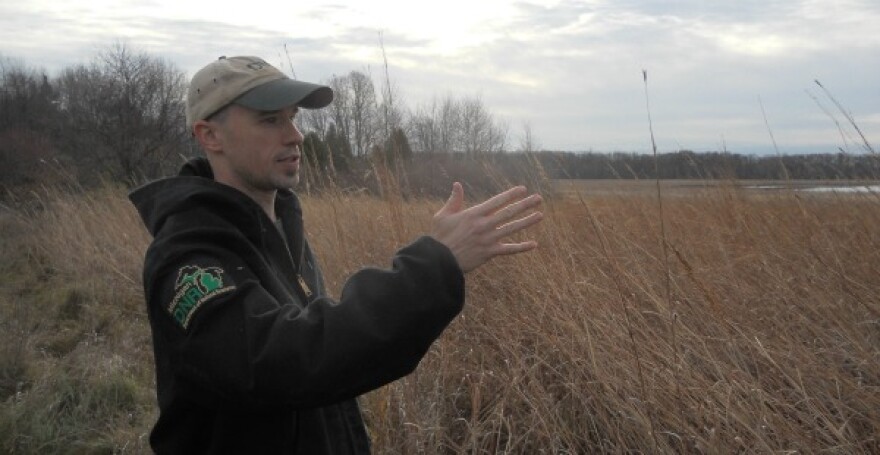By Mark Bashore, WKAR News
http://stream.publicbroadcasting.net/production/mp3/wkar/local-wkar-993686.mp3
BATH TOWNSHIP, MI –
Firearm deer season begins today in Michigan. State officials expect around 290,000 licensed hunters with firearms to pursue a white tail in the southern Lower Peninsula in the next two weeks.
Brent Rudolph manages the state's deer program for the Michigan Department of Natural Resources. He says the recent removal of baiting restrictions should increase the chances of smaller landowners seeing a deer.
BRENT RUDOLPH: People that were unable to be as successful the last few years may see better activity for them this year. Generally, we're figuring if folks (were) being negatively impacted in the past by not being able to bait, then they had a neighbor or someone else down the line that was able to take a deer that didn't make its way to them. So we don't think it'll have a big impact in the overall take of deer, but it may be a change for some folks that are in a better position this year than they were in the past.
MARK BASHORE: And how much greater risk is there of a contagious disease among the deer herd now that the ban's been lifted?
RUDOLPH: Well, our concern has always been about disease and the role it can play--that baiting can play--by bringing deer closer together. The rules that are in place though limit hunters to two gallons of bait. The bait needs to be spread out over a 100 square foot area, about 10-foot by 10-foot. If folks follow those guidelines and if they especially only put bait out when they're hunting instead of putting it out at the same spot over and over again, it's going to minimize the risk that that bait will represent.
BASHORE: Eric Sharp in the Detroit Free Press wrote the other day that with new home construction so light that timber companies are doing less cutting and that means less deer habitat. Do you agree with that or have you noticed that?
RUDOLPH: Yes, we've had some concerns in our northern regions, particularly the Upper Peninsula where there, in the past, has been a pretty active timber industry in some places that has kind of slowed down. As habitat matures, it's less beneficial to deer. They need good, green, growing forage down close to them that older, mature trees don't provide. We've just seen since about the mid to late 90's actually a slow down in some of the timber cutting for a variety of some of those reasons and that's leading to deteriorating quality of deer habitat in those regions.
BASHORE: But that's much less of an issue here in southern Michigan, right?
RUDOLPH: It's much less in southern Michigan because we certainly have farmland, even lawns and landscaping and other places that do provide that good nutritious forage for deer. We don't have a mostly forested landscape that matures in the same way as we see in some of our northern regions.
BASHORE: Which leads me to my next question. Just a few miles from here in Meridian Township they're allowing hunters on township property for the first time to start reducing the deer population. I know the township consulted with DNR on this, but what do you make of municipalities having to take these measures?
RUDOLPH: I expect that'll probably be something that more and more municipalities do explore. And hunting, if it can be done safely and feasibly, is certainly the easiest tool available, since otherwise municipalities have to pay for sharpshooting programs or other things if they want to actually address deer numbers. We try and advise folks on ways to help reduce the incidence of car-deer collisions or help deter deer from browsing landscaping and other things. But there's only so far that those things will go to minimize the impacts that deer can have.
BASHORE: There's quite a big economic impact to hunting in Michigan and deer hunting in particular, I believe. Tell us about that.
RUDOLPH: Ninety-percent of our hunters do hunt deer, so that's above the national average of about 80 percent in each state. National surveys by the U.S. Fish and Wildlife Service have shown, I think about $585 is the average annual expenditures by a deer hunter. And overall, we have about 700,000 individuals purchase a license to hunt deer in Michigan, so that several hundred dollar average times 700,000 people a year is a big economic impact in the state.

